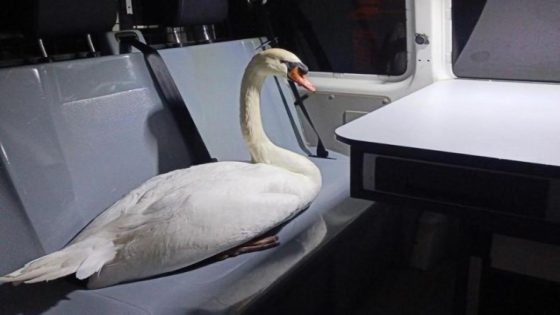A wolf, possibly the well-known female named Emma, has been spotted in a residential area of Belgium. This sighting raises questions about wolf behavior and their interactions with humans, especially during weekends when outdoor activities increase. On February 10, 2025, wildlife organization Welkom Wolf noted that wolves tend to seek shelter from human activity.
- Increased wolf sightings on weekends and holidays
- Wolves feel safer in nature during weekdays
- Wolves seek cover from human disturbances
- Wolves are not a threat to humans
- Emma the wolf identified in the region
Why Are Wolves Like Emma Seeking Shelter Near Human Areas?
Have you ever wondered why wild animals are drawn to urban settings? The recent sighting of a wolf in a Belgian villa neighborhood underscores this phenomenon. As more people engage in outdoor activities on weekends—like hiking and biking—wolves feel pressured to flee to safer areas.
The Impact of Human Activity on Wolf Behavior
The interaction between humans and wolves is complex. When people flock to natural areas during weekends, it disrupts the peace that these animals rely on for survival.
- Wolves prefer solitude but will flee when disturbed by human noise.
- The presence of walkers, cyclists, and hunters can force them into unfamiliar territories.
- This behavior highlights the need for awareness among outdoor enthusiasts.
- Understanding wolf behavior can help reduce conflicts between humans and wildlife.
What Makes Wolves Like Emma Unique?
Emma’s story is not just about her survival; it’s about adaptation. Living near urban environments poses challenges for wolves as they navigate spaces filled with people. Unlike common misconceptions, wolves like Emma are not dangerous to humans; they primarily seek distance from US.
The Role of Organizations Like Welkom Wolf
Organizations such as Welkom Wolf play a vital role in monitoring wolf populations and educating the public. Their insights help demystify wolves and promote coexistence strategies that benefit both wildlife and communities.
The Importance of Respecting Wildlife Spaces
Respecting natural habitats is essential for the well-being of local fauna. By understanding animal behaviors and maintaining safe distances, we can create harmonious environments where both humans and wildlife thrive together.

































